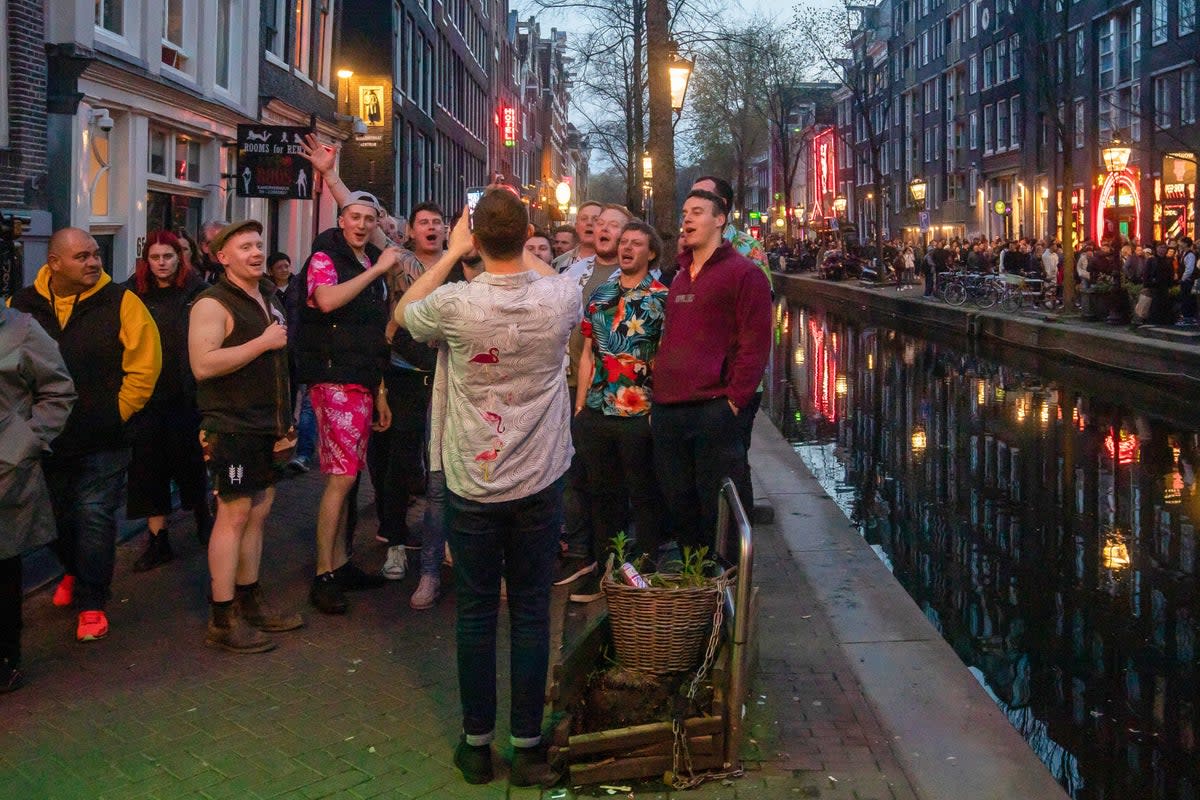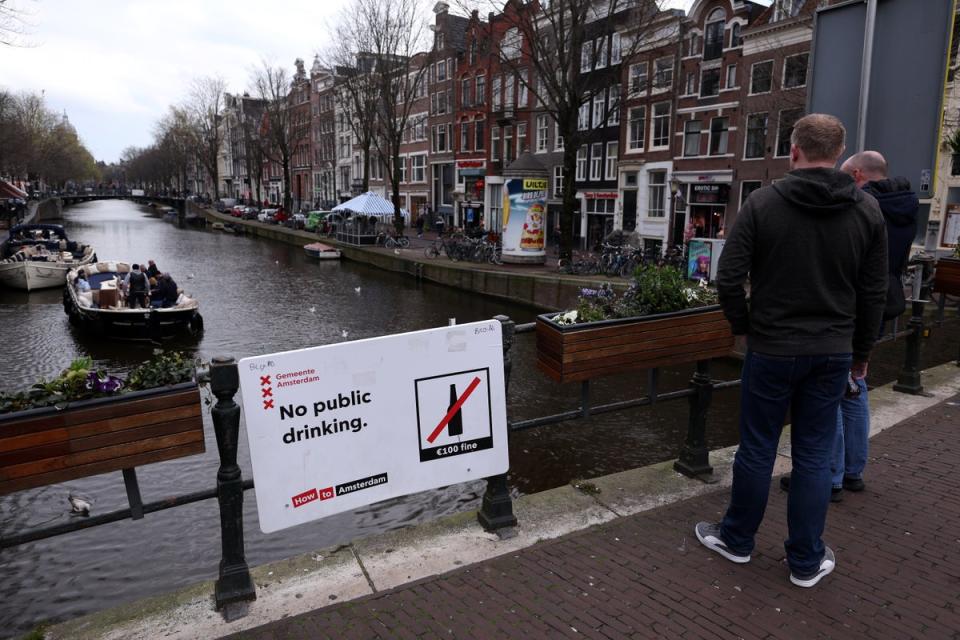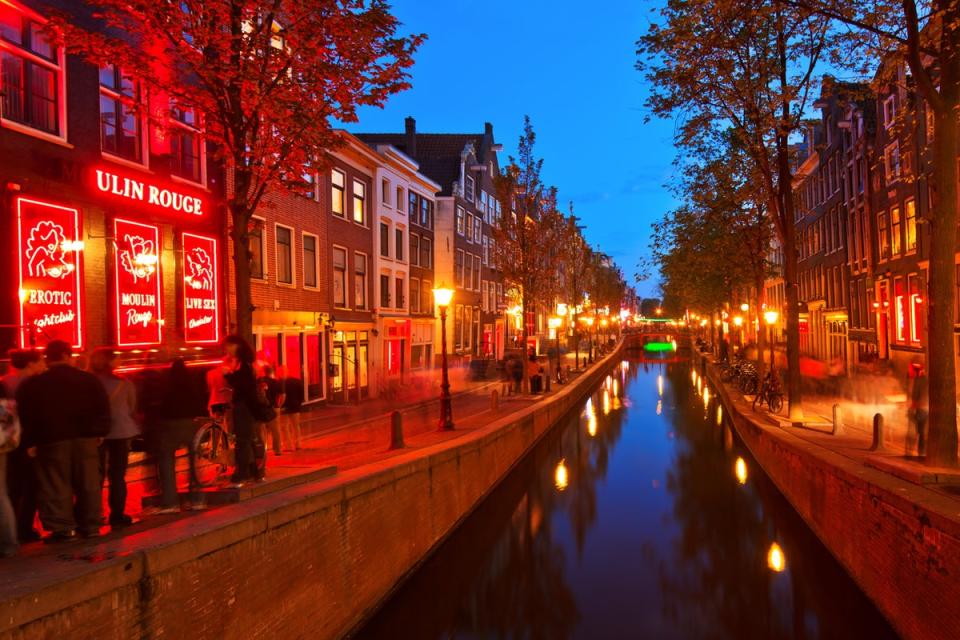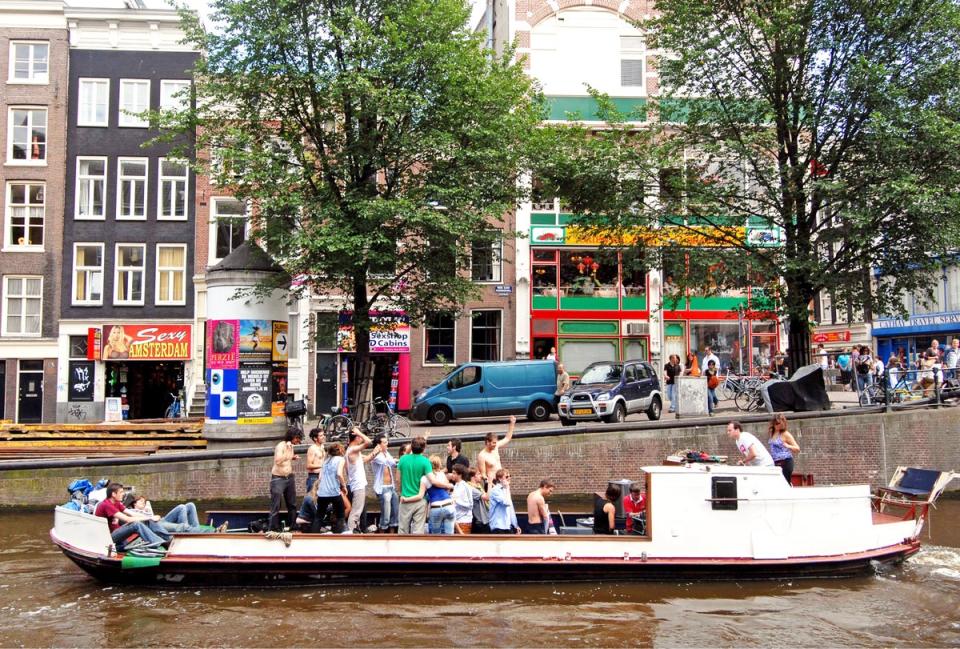Amsterdam’s new tourism campaign is patronising and toothless – but they’re right to treat Brits like imbeciles

Was it stroopwafels, the delicious Dutch treat of syrup sandwiched by thin waffles, that I wanted to consume great quantities of in Amsterdam, or cocaine?
One of those hadn’t even had a sniff of interest from me – the latter, if you must know – but this is an actual question that potential British visitors are being asked by the municipality of the Dutch city.
The surprising query is part of the tourism hot spot’s latest “Stay Away” campaign, consisting of an online survey titled “Amsterdam Rules”, which also asks why you’d like to visit (spoiler: the “wrong” answer is stag party), whether you’d like to kick up your clogs until 5am, and if you fancy pairing a bubble pilsner with a spliff. You get passive-aggressively chastised each time your plans are “going to be a hassle” (presumably for long-suffering Amsterdammers).

I didn’t think I’d be the target for such a campaign, but it turns out I am: a British man aged 18–35. Blighty has the accolade of being the first official target audience, ahead of Germany, France, Spain and Italy, which are next on the list.
The Municipality of Amsterdam is cracking down on “party tourists”, those who it says visit to “push their limits”, which “fuels the illegal drug trade” and “causes inconvenience for residents and entrepreneurs”. In fact, the very quality of life in the city centre “is under pressure”.
Read more on Netherlands travel:
The premise is solid. Those searching online using terms such as “Amsterdam coffee shop”, “Amsterdam red light district” or “Amsterdam stag do” will be directed to the interactive quiz.
It’s a humiliating and condescending approach to finding “better” tourists – but the Dutch capital is entirely right to treat us as irresponsible troublemakers. We only have ourselves to blame after carefully curating a less-than-favourable image.

The “Brits Abroad” stereotype persists, in memory but also in reality. Before I get accused of unfairly doing down my fellow citizens, I’m well aware that we’re not the only nationality to behave badly when savouring that potent mix of new surrounds and booze. But I’ve reported on enough planes making emergency stops due to disruptive passengers, spoken to plenty of locals of Greek islands and read police reports from overseas to know that the cliché still has loyal advocates.
I asked a 28-year-old Scottish man, who asked not to be named but is planning to visit Amsterdam with three other chaps in May, what was the main reason for the trip. There was almost some beauty to his conciseness: “To get on it.”
And will being pointed to the “rules” for tourists have an effect on their behaviour? It was an expletive, followed by “no”. Not the answer that tourism bods would have wanted for their estimated €90,000 (£77,236) spend.
“Amsterdam may now be regretting having opened the floodgates to cheap tourism, which can mean over-enthusiastic, overdosed visitors which will ultimately cost the city dear in terms of police time and other associated management issues,” says Ted Wake, managing director of Kirker Holidays, which has been taking holidaymakers to the city for more than 30 years.
“Importantly, this also affects local people and many visitors adversely.”
They’re fighting the good fight – but does it go far enough? This campaign follows last year’s online approach, with those searching similar phrases shown warning videos on the consequences of drug use and drinking to excess. The initiative cost the city €85,000 (£73,945) – and officials admit that it did not have “an overall discouraging effect” on the nuisance visitors. And even with additional measures – early closing times in the Red Light District, a ban on group tours, a ban on spending the night in cars – there’s no evidence that this softly-softly course will work.

Chelsea Dickenson, founder of CheapHolidayExpert.com, told me that she understood the sentiment behind it but that the gentle reminders of good behaviour are unlikely to stick.
“I’m not sure sticking to the rules has ever been a primary concern for the individuals this campaign is actually trying to target,” she joked.
As my esteemed colleague, Simon Calder, pointed out (and the municipality has since confirmed), it is not in fact forbidden to organise a stag do there, despite what the quiz says. Tom Bourlet from The Stag Company told The Independent, that it is the “ultimate irony” that “rebellious Brits” have led to the firm seeing a giant leap in web traffic and enquiries about Amsterdam – as they did during the 2023 campaign push.
“Amsterdam had a very quiet January to February, slipping out of the top 10, but I’m hoping the Amsterdam council might do the same again for us,” he says, adding: “We need to hire their team to work for us.”
A search on Google reveals companies willing to show me “a Dam good time”, with another describing anointing Amsterdam the “capital of debauchery”. If the tourist board wants people to simply associate the city with tulips, Rembrandt and the like, they need to get real with their crackdown. Continued misery for city dwellers will not be quelled by officials pussyfooting around with these light touches – but they’re entirely justified being supercilious if tourists, at a whiff of being asked to respect their host city, lean instead into acting out.
“Let’s hope that the Amsterdam local authorities address the challenge before it becomes a real, long-term problem for both the local residents and for tourism,” Ted Wake warned, praising the “warm hospitality” that the city offers visitors.
Ahead of a trip to Amsterdam next month, I’m pleased to say that I “passed” the test, after which I’m told “my responsible choices show that you value a positive of experience”. Which means a no to coke and yes to a caramel waffle snack.
Read more on the best hotels in Amsterdam


